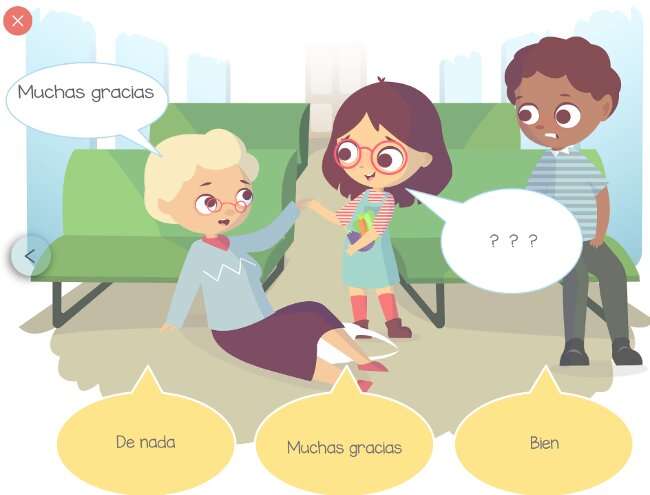Researchers create an app for the evaluation and treatment of social communication skills in children aged 3 to 12

Researchers at the Universitat Jaume I (UJI) and the Universitat Oberta de Catalunya (UOC) have developed PleaseApp, an application that aims to evaluate, dynamically assess and treat pragmatic and social communication skills in children aged three to 12 using an attractive, playful and child-friendly environment.
Researchers at the Universitat Jaume I (UJI) and the Universitat Oberta de Catalunya (UOC) have developed PleaseApp, an application that aims to evaluate, dynamically assess and treat pragmatic and social communication skills in children aged three to 12 using an attractive, playful and child-friendly environment.
The tool is intended for use by psychologists, speech therapists and other educational psychology specialists who work with children with developmental disorders, especially those facing pragmatic and social communication difficulties. The computer application has been registered and is ready for installation and use by Windows and Mac operating systems, pending a licencing agreement.
The researchers drew on empirical studies and reviews to design the app. Firstly, they explored the milestones that children without disabilities typically reach while developing their pragmatic and social communication skills. Then, they looked into the difficulties faced by children with atypical language development, such as those with a developmental language disorder (DLD) or autism spectrum disorder (ASD).
"Our innovative method allows us to obtain a specific or dynamic perspective of each child's abilities, thereby providing useful information for planning subsequent adapted interventions that meet their real educational needs", explain the UJI researchers Clara Andrés and Raquel Flores, and the UOC researcher Alfonso Igualada.
The app, which is offered as both a computer application and a webapp, has been tested with children aged three to 12 with and without neurodevelopmental disorders. It makes it possible to detect whether children have age-appropriate pragmatic and social communication skills and to specify which particular problems they present on ten different levels: understanding of figurative language; understanding of complex intentions; understanding of humour; learning new words from context; sequencing of communicative situations; conversational meta-pragmatics skills; reference skills; gesture-spoken-context integration; use of polite formulas; and understanding of indirect requests.
The tool enables playful and motivating interventions thanks to aspects such as reward systems and constructive feedback. Each of the ten levels corresponds to a different scenario and the characters are mostly boys and girls. They use settings that are familiar to school children, such as school, the zoo, the park or the cinema. At each level, there are instructions for children to help the main character choose the right solution among several options. In addition, children can choose to have the text instructions, dialogues and options read aloud for them.
Educational psychologists can create as many participants and add much information as they want: code, gender, date of birth, diagnosis, school, educational level, observations. Depending on the therapeutic objective (evaluation, dynamic assessment or treatment), and the children's characteristics (age and abilities), specialists will have to supervise or reinforce it to a greater or lesser extent.
In addition, the app has an evaluation route and an intervention route that allow it to be used in its evaluation, dynamic assessment and treatment functions in each of the ten components. Professionals can obtain a report of participants' performance in each of the levels completed.
In the evaluation mode, children's skill level is determined. In the dynamic assessment mode, their learning process and potential are assessed, and the necessary aids for improving their skills are provided. Finally, treatment mode allows to train these skills, since the intervention items can be used within an intervention programme comprising different pragmatic components.


















